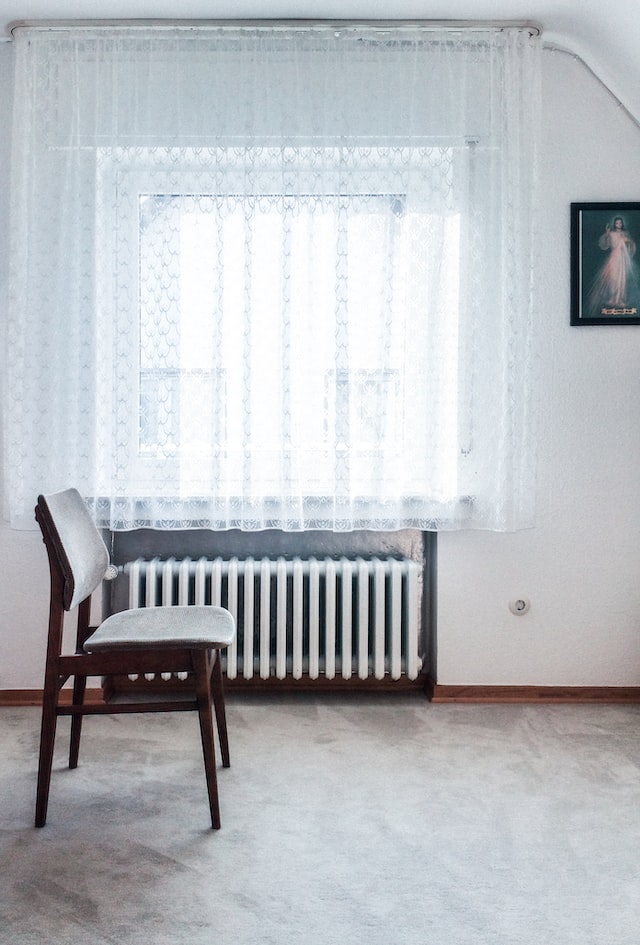Heaters, also called convection heaters, use natural convection to circulate warm air throughout the room. Radiators, on the other hand, use forced convection to circulate hot water or steam throughout the room Additionally, radiators are typically more effective in larger spaces, while heaters work well in smaller areas.
What is a radiator?
Radiators are devices that transfer heat from one medium to another. In most cases, they are used to transfer heat from a fluid to a solid, but they can also be used to transfer heat from a solid to a fluid. Radiators are found in many different types of systems, including HVAC systems, automotive engines, and even some computer cooling systems.
What is a heater?
A heater is a household appliance that is used to heat up a room or an area in a building. It usually consists of a metal box with an electric element inside that emits heat.
How do a heater and a radiator differ?
Here are a few more key differences between these two types of heating systems:
-Heaters are typically more expensive than radiators.
-Radiators can provide more even heating throughout the room since they distribute heat via hot water or steam.
-Radiators typically take longer to heat up than heaters.
-Radiators are better at circulating warm air in large rooms since they rely on natural convection.
Are radiators more efficient than electric heaters?
Radiators are more efficient than electric heaters in several ways. First, radiators transfer heat more effectively than electric heaters. Radiators do not dry out the air like electric heaters can. This is because radiators heat objects in the room directly, rather than heating the air around them. This means that radiators can provide a more comfortable and humid environment than electric heaters. Finally, radiators are generally less expensive to operate than electric heaters.
Are radiators safer than heaters?
Radiators are often thought to be safer than heaters, as they do not emit any fumes or gases. However, radiators can become extremely hot to the touch and should therefore be used with caution. Heaters, on the other hand, usually have a fan that circulates the heated air around the room, making them less likely to cause burns.
What type of heater is best for outdoors?
If you’re looking for a heater to keep you warm outdoors, there are a few different types to choose from. One option is an infrared heater, which emits heat that’s similar to the sun’s rays. Infrared heaters are often used in patio areas and can be mounted on walls or ceilings. Another type of outdoor heater is a propane-powered model, which is portable and can be used in a variety of settings. Propane heaters typically have a higher heat output than other types of outdoor heaters, making them ideal for large spaces or chilly evenings.
Are radiators a fire risk?
Radiators are not a fire risk if they are used correctly. However, if they are not maintained properly, they can become a fire hazard. Radiators should be cleaned regularly to prevent build-up of dust and debris. If a radiator is damaged, it should be repaired or replaced immediately.
Pros and Cons of a radiator and an electric heater
Radiator:
-Radiators transfer heat by circulating hot water or steam through metal pipes.
-Radiator prices vary depending on the size and type of radiator.
-Radiators can be less expensive to operate than electric heaters, since they don’t use as much energy.
-Radiators can last for many years with proper maintenance.
Electric Heater:
-An electric heater uses electricity to generate heat.
-Prices for electric heaters can vary depending on the type and size of the heater.
-Electricity costs can be higher than operating a radiator, making electric heaters more expensive to run.
– Electric heaters typically have a shorter lifespan than radiators.
Why are radiators no longer used?
There are a few reasons why radiators are no longer used as much as they once were. One reason is that they are not as efficient as newer heating methods. Radiators also tend to take up a lot of space, so they are not always practical in smaller homes or apartments. Additionally, some people find that radiators can make a room feel stuffy and cramped.
Photo by Dominik Kuhn on Unsplash








